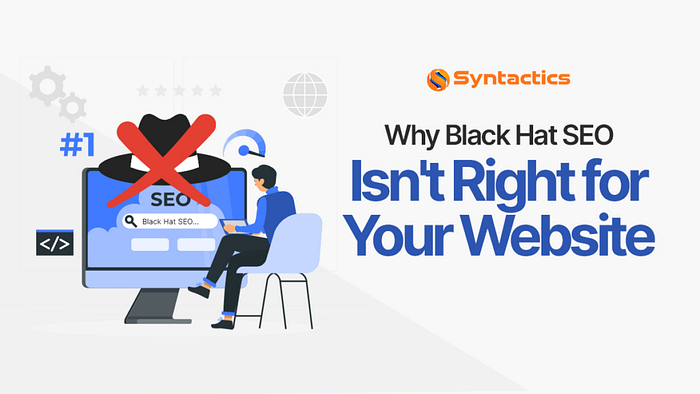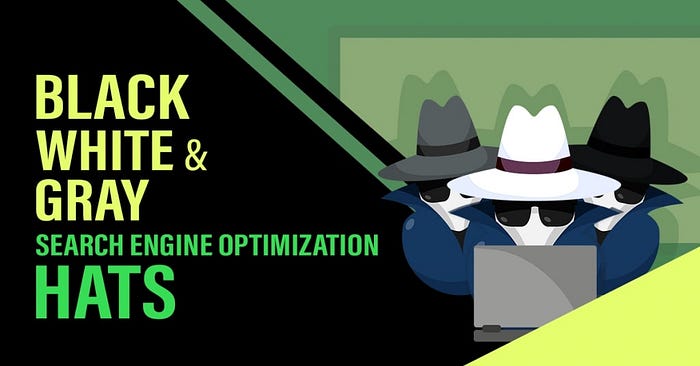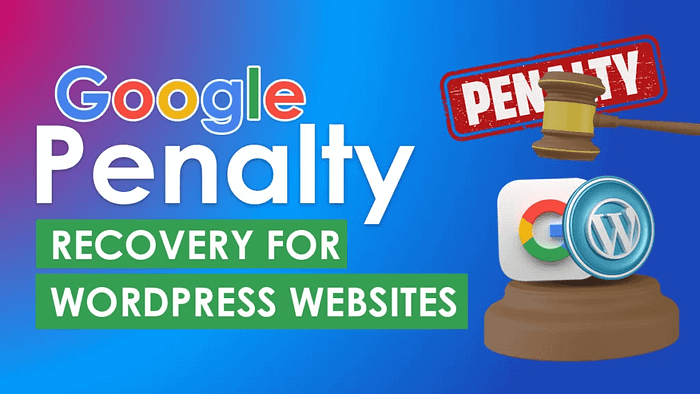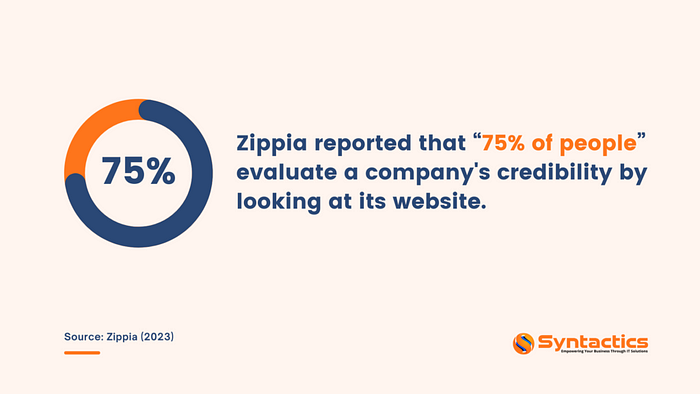Why Black Hat SEO Isn’t Right for Your Website

Black hat Search Engine Optimization (SEO) covers unethical tactics that manipulate search engine rankings to gain more website traffic instead of addressing user needs. These often violate guidelines and can result in heavy penalties. That’s why professional SEO services utilize white hat tactics — it’s the polar opposite.
Understanding Black Hat SEO
The term “black hat” is derived from old movie tropes that distinguish the “bad guys” from the “good guys,” which exactly defines this kind of practice. Black hat Search Engine Optimization is a series of practices that increase search results page rankings and online visibility through means that violate commonly accepted online terms and services.
Utilizing these practices results in hefty online penalties. In addition, Google has undergone algorithm updates every year since 2020 to better detect and penalize black hat techniques.
Engaging in these SEO practices only provides businesses with short-term results and benefits. If used continuously, they will ultimately have a lasting and dangerous effect on the website’s visibility, which can spread to the business’s reputation.
Comparison To White and Gray Hat SEO
White and gray hat Search Engine Optimization practices exist, as opposed to black hat ones.
Firstly, white hat SEO practices adhere to search engine guidelines while focusing on providing valuable and relevant content to users. White hat practices include creating quality content, optimizing website structure, and gaining backlinks through genuine means.
Though slower in generating results, white hat SEO fosters lasting credibility and trust among users and search engines, minimizing the threat of penalties.
Meanwhile, gray hat SEO practices are considered to be the middle ground, playing safe while using a few outside-the-box approaches.

Common Black Hat SEO Techniques
SEO black Hat techniques are manipulative and unethical, though quick to generate traffic. These tactics breach search engine guidelines and lead to significant penalties or bans. They encompass the following:
Keyword Stuffing
Adding keywords helps in optimizing content to increase search engine rankings, but overusing them veers into black hat territory. Keyword stuffing involves excessively adding an unnatural quantity of keywords throughout a website or its content. This practice often leads to heavy penalties, further damaging your SEO rankings.
Cloaking
Cloaking is another deceptive practice that can take many different forms. In SEO terms, cloaking displays different content to users than what’s shown to search engines. Also known as a bait-and-switch strategy, it shows irrelevant or spammy results. Cloaking involves user-agent cloaking, IP cloaking, and hidden content.
Hidden Text and Links
This deceptive black hat SEO practice involves hiding content within a web page. It includes making certain text and links the same color as the background, hiding them behind an image, or even reducing them to a zero font size. This strategy also falls under the previously mentioned cloaking.
Clicking through this hidden content will influence the search engine into mistaking the page as a highly-visited one.
Doorway Pages
Doorway pages are best described as low-quality web pages created solely to rank high on search engines with specific keywords. Unlike cloaking, this tactic doesn’t rely on baiting users but rather takes advantage of indexed content and landing pages optimized for keyword queries.
Let’s say a user looks up a particular keyword and sees a page that matches what they’re looking for. Upon clicking it, they’ll be redirected to a different page. In some cases, the page may even be unrelated to the initial query.

Duplicate Content
Duplicated content involves directly copying from various sources, particularly competitor websites. This unethical practice typically entails plagiarizing content and recycling ideas by rephrasing them. Such black hat tactics can lead to penalties and legal consequences for copyright infringement.
Paid Links or Link Farms
Link farms are a set of paid links that are connected to each other. This is similar to SEO link-building strategies. Purchased links consist of low-quality websites that are acquired directly to enhance a site’s search rankings. However, these links are generally unsafe due to being a form of manipulation by search engine regulations.
The motive of link farms is to also boost the target website’s credibility and weight as legitimate.
Hacking
Hacking is considered to be one of the more malicious black hat practices. Through this, hackers are able to gain unauthorized access to a website and decrease its rankings through damaging methods. These methods include the following:
Deleting or defacing web page content;
Pointing your URLs towards untrustworthy destinations;
Introducing malicious code that endangers users, etc.
This kind of black hat SEO may not be readily noticeable at first glance. In addition, according to Alarming Hacking Statistics, a staggering 2,220 cyberattacks occur daily.
Risks and Consequences of Black Hat SEO
Black hat Search Engine Optimization strategies often revolve around manipulating the content to get as much engagement and attention as possible. However, all SEO services experts know that this isn’t the right way to rank on search results pages. It’s even less so because it comes with significant risks and consequences.
The majority of search engines today are sharp at identifying and penalizing websites that follow such tactics. Penalties can vary from temporary ranking drops, permanently lowered website rankings, and even being banned from search results altogether.
Being taken out from search engine results alone can cause a significant loss of traffic, credibility, and revenue. Moreover, this can also lead to an overall negative user experience. A bad reputation will require businesses to work extensively to regain their original SEO standing and rekindle user trust.

Source: Zippia.
How To Report Black Hat SEO to Google
It’s necessary to report sketchy SEO tactics to Google to maintain the integrity of search results. Here’s how to report to Google:
Review Google Webmaster Guidelines thoroughly and use them to identify what falls under black hat SEO strategies.
Make a list of domains that engage in or show signs of black hat SEO practices.
Identify the correct spam reporting form. Categories include:
Spammy Content
Paid Links Spam
Malware
Phishing
4. Provide details of the black hat tactics used on the website.
5. Submit the form once everything is filled up.
Ethical SEO Practices for Long-Term Success
Instead of taking risky and deceitful tactics under black hat SEO, it’s best to consider more ethical practices to garner improved online rankings. Here are some ethical SEO practices that you can adopt for long-term success:
Creating High-Quality, Relevant Content
A safe and successful way to build up your SEO rankings is to create high-quality content that matches users’ interests and addresses their needs. Top Website Statistics For 2024 revealed that web visitors spend nearly six seconds looking at a site’s written content.
Regularly publishing relevant content can drive more organic traffic to the site. Knowing what resonates with your audience is especially needed to write engaging content.
Ensuring Proper Keyword Usage
Professional SEO services can naturally incorporate relevant keywords throughout your website content and meta tags. Additionally, it’s vital to avoid over-optimizing or stuffing your site with irrelevant keywords or hidden text.
Ensuring Your Website is Mobile-Optimized
According to WebFX, 54% of all website traffic comes from mobile. Thus, SEO experts can work with web developers to ensure your website is mobile-friendly, which can result in a better user experience.
You can also ensure that your website shows search engines and users the same content — the opposite of using cloaking tactics.
Keeping Page Load Speed to a Minimum
Image optimization offers various benefits for websites, such as increasing page load speed. Gitnux found that the ideal page load time is three seconds or less. To accomplish this, you can convert your image files to WebP.

Building Natural, Organic Backlinks
Rather than buying links, you can utilize natural backlink tactics. SEO services can accomplish this through content marketing strategies that revolve around collaboration efforts. These strategies can include:
Guest blogging;
Influencer marketing, and
Fostering authentic relationships with potential linking partners, such as through outreach efforts.
In addition, it’s vital to avoid purchasing links or engaging in link schemes.
Optimizing Website Structure and User Experience
Regularly optimizing your website’s content and structure is another ethical practice to ensure a positive user experience. By prioritizing user needs, preferences, and interests, your website can provide a more positive experience.
Conducting Regular Web Content Audits
Conducting website content audits is another helpful way to avoid black hat practices. During audits, consider paying close attention to specific factors, such as sudden spikes in backlinks or changes in keyword density.
Regularly following white hat practices and adapting to algorithm changes ensures your SEO standing remains healthy in the long run.
Count on Professional SEO Services to Use White Hat Tactics!
Black hat SEO techniques, though they result in quicker rankings, are something you should avoid at all costs. These SEO practices can ultimately lead to severe repercussions and loss of trust among your users. As a website owner, it’s critical to prioritize ethical practices for quality and integrity.
Professional SEO services in the Philippines will follow the right practices to ensure healthy website rankings.